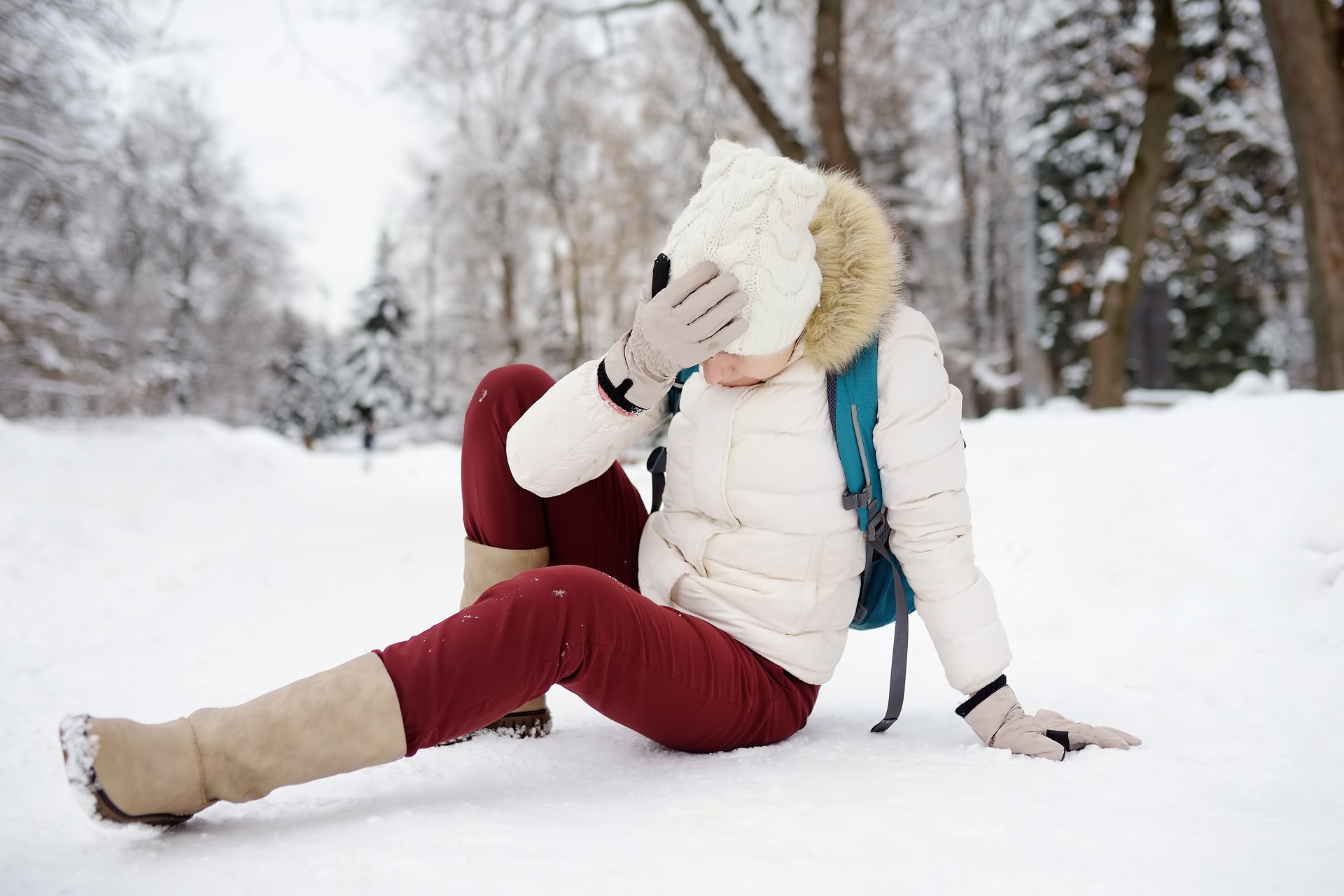It's cold out. The ground is icy in spots. I'm in a rush. We all know what this means - I could slip, fall and hurt myself. It's a pretty obvious problem and one that affects hundreds of us U of A students every winter season. But there's maybe a bit more to the story, so I went around campus looking for a few answers to some questions I had: how can I avoid slips and falls? What should I do (and where should I go) if I fall and hurt myself? What happens if I'm injured and can't complete coursework? I was able to reach out to experts in a variety of departments, and I'm back to share some of their (very) helpful advice.
My first stop was Philip Stack, Director of Health, Safety and Environment (HSE). I had two questions for him: How can I prevent slips and falls? And what should I do if I notice a particularly icy spot on campus? He had a few helpful words:
"Icy conditions are a major cause of slips and falls -- these can result in serious injuries. If you're travelling between classes, take your time and make sure you wear appropriate footwear. If you do slip or fall, please report it to HSE so we address it as soon as possible. Student support is invaluable as we work to maintain safety on our campuses."
That sounds like two big things to do to stay safe (and upright):
- Take your time: it's obviously easier to stay upright, and a fall can add a lot more to your commute - not to mention the inconvenience of an injury.
- Wear proper footwear: I personally choose something with lugs - small protrusions from the sole that help grip.
But slips and falls do happen. Luckily we have a full-service clinic for the university community on North Campus - the University Health Centre (UHC). If someone falls and is in need of care (but it's not immediate and urgent - call 911 in that scenario), the UHC is the place to go. I spoke to Terry Scott, a Registered Nurse and Occupational Health Nurse at the UHC, for a bit more info on some common injuries from slips and falls:
"We often see students and staff who have suffered a fall at home or on campus. Injuries can range from abrasions and bruises to strains, sprains and fractures.
There are also a variety of individual characteristics that can impact recovery time - severity of the injury, age, weight, activity level, or if it's a recurring injury."
Do we keep track of the causes? Are there special things to watch out for?
"The causes are varied: poor lighting, rushing to get something done, backpacks that are too heavy and put the person off their centre of gravity, medical conditions, not paying attention to surroundings, but especially snowy, icy and wet conditions. Slipping on the LRT station stairs is an especially common scenario at the university."
What happens if someone is injured (in general, as well as due to a slip or fall) and can't complete coursework or exams? Dr. Mebbie Bell, Student Equity and Accessibility Director, helps students with accommodations and plenty of information for this scenario:
"Students who experience temporary injuries (such as concussions, broken hands, or sprained ankles) that impact their ability to participate in their daily academic activities may be eligible for excused absences, deferrals, or other permitted leaves of absence from or modifications to academic assessments and other program requirements. To explore these options:
- review your course outlines.
- contact your instructors right away to request excused absences (from term work) or your home faculty office to request deferrals (for final exams or assignments).
- consult the Office of the Registrar's What To Do When You are Sick (Students) exam-related information.
- check the University Calendar sections on Examinations and Attendance.
Undergraduate students may contact their faculty office for additional information about absences from academic attendance and assessments; graduate students should contact the Faculty of Graduate Studies and Research.
In most cases, your instructors will be able to address the restrictions caused by your injury with excused absences, deferrals, or basic academic modifications.
However, if the restrictions caused by your injury persist or require more assistance and/or assistance for longer than your instructors are able to provide, you may be eligible for accommodations based on temporary physical disability. If you need more assistance, submit an application for accommodations based on temporary physical disability as soon as possible, including medical documentation that verifies and explains the extent of your injuries."
Now, after my journey around campus (slowly and in proper footwear!) I have the following consolidated advice about slips and falls:
- Wear proper footwear when it's slippery or icy out.
- Take your time, and be aware of your surroundings.
- If you notice a particularly icy area, report it to HSE
- Should you slip or fall or have an injury requiring care, you can visit the University Health Centre
- Need to miss coursework or exams? Review Dr. Mebbie Bell's advice above!
The University of Alberta is committed to the safety, health and well-being of our faculty, staff and students. Every day, we advance this commitment to safety through the Culture of Care.

